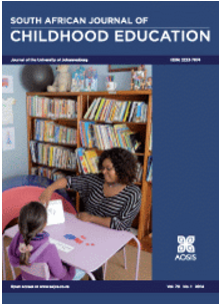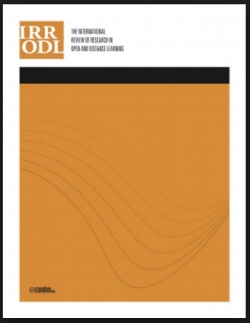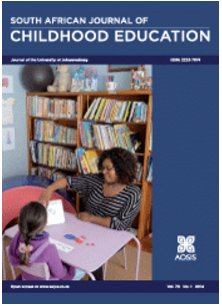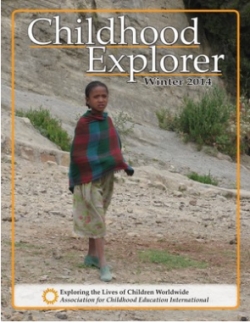The impact of public spending on education in Nigeria
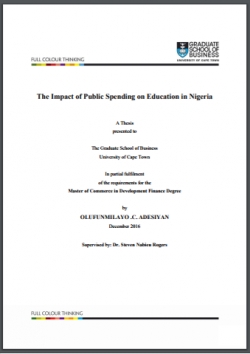
Type
Thesis
Authors
Category
ECCE, Foundation, Intermediate, Senior
[ Browse Items ]
Publication Year
2017
Publisher
University of Cape Town, Research of GSB, Cape Town, South Africa
URL
[ private ]
Pages
86 p.
Subject
Early childhood education, Primary education, Secondary education, Public funding, Government funding, Enrolments, Nigeria
Tags
Abstract
This study investigated the impact of public spending on enrolments in primary and secondary education in Nigeria using a multiple regression model. The model was constructed to identify the relationship between government spending, primary and secondary enrolments rate while also considering the interaction with control variables; per capita income, workers remittances, and population growth. Using the OLS approach to analyse the data for the period 1981 to 2013. Interesting observations were made which are explained for by inconsistency in government allocation or spending on education in Nigeria. It was observed that a significant positive relationship exists between per capita income, government spending, and primary school enrolment rates while a negative relationship exists between population growth, workers' remittances and primary education enrolment. As for secondary education enrolment rate, there is a positive relationship between per capita income, population growth but a negative relationship with government spending and workers' remittances due to the fee-paying secondary schools and interest in informal trade. These findings add nuance to the understanding of the variables affecting education enrolment rates in Nigeria beyond that of government spending, to other variables which are critical to the structure of the economy given its high immigration and out of school children population. This study is part of the growing empirical literature addressing education finance and outcomes gap. Beyond the consistency required in financing, the Nigerian government must build infrastructure that will support improvement in the overall social well-being of the growing populace and encourage transition into secondary schools.
Description
Thesis (MCom)--University of Cape Town, 2017
Number of Copies
1
| Library | Accession No | Call No | Copy No | Edition | Location | Availability |
|---|---|---|---|---|---|---|
| Main | 777 | 1 | Yes |
